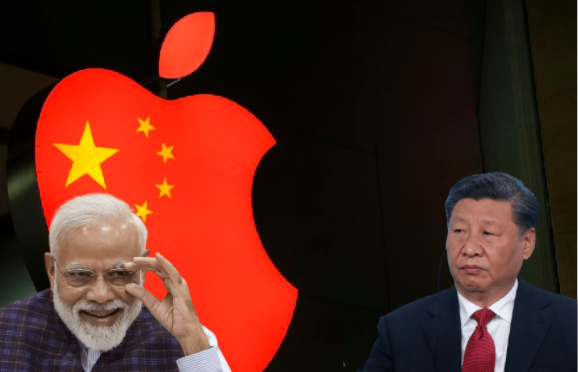Apple on Thursday (October 28) announced its financial results for its September quarter revenue. Reportedly, the company posted $83.4 billion in revenue, up 29 per cent year over year, and net income of $20.6 billion. However, despite the filthy jump in revenue, it fell billions short in the revenue projected – owing to the supply chain blockades in the global market, primarily caused by the shortage in semiconductors and Covid-19 related disruptions.
Wall Street had estimated revenues of $84.85 billion and upon the release of numbers, Apple’s stock price dropped 3.5 per cent to $147.21 in after-hours trading Thursday.
A 6 billion dollar impact and counting
Apple CEO, Tim Cook calculated the impact to be around 6 billion dollars and said that the situation was getting worse, “We estimate these constraints had around a $6 billion revenue dollar impact, driven primarily by industrywide silicon shortages and COVID-related manufacturing disruptions,”
Gauging the impact of constraints going ahead, Apple finance chief Luca Maestri remarked during the earnings call, “We expect revenue for each product category to grow on a year-over-year basis, except for iPad, which we expect to decline year over year” on supply constraints,”
China – an impediment for Apple’s production line
Ever since the pandemic began, the rise in demand for electrical equipment has led to an increase in the demand for semiconductors. With a drastic drop in the supply and China the supposed ‘factory of the World’ becoming an impediment, Apple is feeling the heat.
Last month, some Apple suppliers had to suspend operations in China due to a power crunch. Apple is also said to be slashing the production of iPhone 13 production targets for 2021 by as many as 10 million units as its suppliers fail to secure enough components in China. Moreover, the ongoing power crisis coupled with Jinping’s crackdown on entrepreneurs had made industrial activity in China incredibly difficult.
India gearing up to become a leader in supply chain line
With high dependency on China posing problems to Apple, India could very well be the next destination for Apple to drop its anchors. It makes sense for Apple to shift its base to India. It is already manufacturing iPhones 12 and 11 in India.
Moreover, as reported by TFI, the Narendra Modi government earlier this month was in advanced talks with Taiwan to bring a chip plant worth an estimated $7.5 billion to India to supply everything from 5G devices to electric cars.
Such has been the domestic hunger for iPhones in India that for the first time, the US-based company has made iPhone 13 available in India as part of the first round of markets. According to Apple, India is among the priority markets now. CEO Tim Cook, during the call also remarked that Apple doubled its business in India in fiscal 2021.
If the bureaucracy of the country can keep the custom duties low and create a complete supply chain market, India can reduce the price of the iPhone for its domestic market and simultaneously become an export factory for the smartphone giant.
